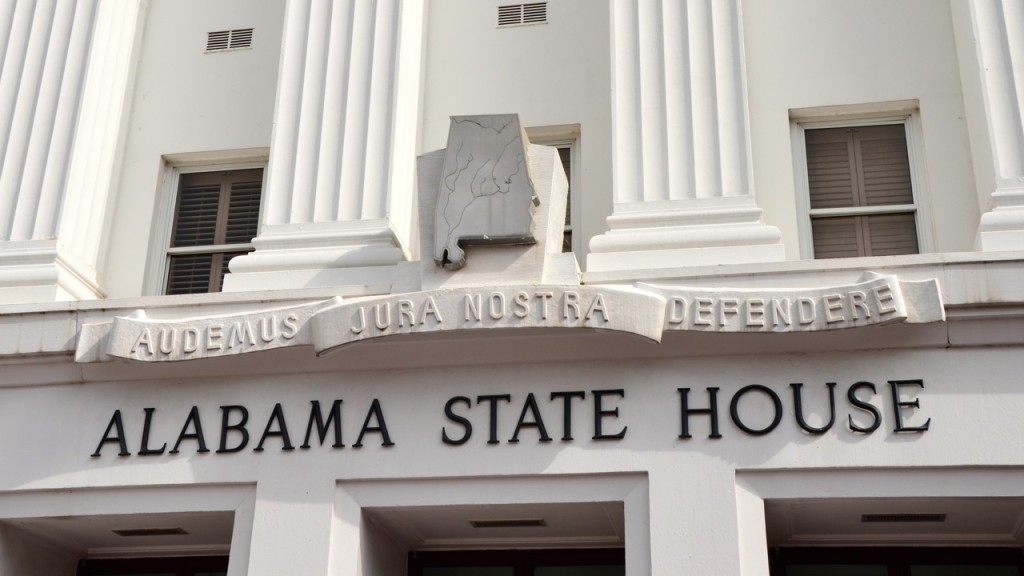Senate committee OKs Fetal Heartbeat Act

The Senate Health and Human Services Committee approved a bill Wednesday that would require physicians to check for a fetal heartbeat before and abortion and prohibit abortions if a heartbeat is detected. SB9 from Sen. Gerald Allen (R-Tuscaloosa) follows a laundry list of controversial bills filed by the Senator and defies previous Supreme Court rulings, which overturned similar legislation in other states. Allen’s bill makes no exception for cases of rape or incest, only in the instance of mortal threat to the mother. The bill further provides penalties for physicians who defy the law making the offense a Class C felony that carries a fine of $15,000 and up to 10 years in prison. Supporters of the bill alleged that studies have shown fetuses are more developed than previously believed, with one suggesting that fetuses are capable of sustaining memories. Opponents suggested that, because heartbeats are detectable as early as five weeks into a pregnancy, the legislation would prohibit many women from attaining an abortion. Further, opponents questioned the state’s ability to afford the lengthy legal battle that would likely ensue as a result of the bill’s passage. The committee passed the legislation with only Sen. William Beasley (D-Clayton) objecting. A similar bill has been filed in the House of Representatives by Rep. Terri Collins (R-Decatur) The committee also approved a bill from Rep. April Weaver (R-Brierfield) which would out law the already illegal practice of selling fetal tissue and parts. Again, Beasley was the only dissenting voice on the committee. Both bills will now go before the full Senate.
Alabama legislative agenda preview: March 7 – March 11, 2016

Alabama lawmakers will return to Montgomery Tuesday as the legislative session resumes, with the House convening at 1 p.m. and the Senate an hour later. Both chambers are still planning to tackle the General Fund and Education Trust Fund budgets before spring break, as well as a host of issues slated to be taken up this week. The Senate will debate SB89 from Sen. Arthur Orr (R-Decatur), which would require all Alabama public school students to pass a civics test to graduate – private schools could opt-in if they chose to. Also on the Senate’s agenda is SB148 from Sen. Jim McClendon (R-Springville), which would require all passengers in a vehicle to wear a safety belt. The legislation came up in last week’s session but was stalled due to opposition regarding further legislation on people’s car-riding habits. The Senate will also take up SB114 from Sen. Paul Sanford (R-Sanford), which would regulate “fantasy contests” in the state, and SB14 from Sen. Gerald Allen (R-Tuscaloosa), which would allow people to carry a firearm in their vehicle without a permit. Allen’s legislation was hotly contested in a recent committee hearing, when state law enforcement officers argued that the bill would make their jobs more difficult and dangerous. The House will also take up a bill aimed at regulating so-called “fantasy contests,” as well HB2 from Rep. Tommy Hanes (R-Scottboro), which would require wireless communications providers to supply law enforcement agencies with location information upon request. Perhaps the bills with highest interest to be taken up in the House this week are HB46 from Rep. Alan Boothe (R-Troy), which would allow Alabama distilleries to begin selling bottles for off-premise consumption, and HB13 from Rep. Alan Harper (R-Northport), which would allow the public to vote on whether or not to institute a state lottery. Committee hearings will get underway Tuesday morning before the start of session, though the majority will take place on Wednesday. The Senate Committee on Health and Human Services will hear discussion on two bills that will likely attract the outrage of Democrats – HB45 from Rep. April Weaver (R-Alabaster), which would outlaw the already-illegal practice of selling fetal tissue, and SB9 from Allen, which would prohibit abortions if providers don’t first determine a fetal heartbeat. The Senate Committee on General Fund Finance and Taxation will hear from Sen. Vivian Figures (D-Mobile) regarding SB136, a bill which would put forth a constitutional amendment to add an additional 5-mill tax to state properties, with the proceeds going to help Medicaid. The House Economic Development and Tourism Committee will hold public hearings regarding two alcohol-related bills – SB219 from Sen. William Beasley (R-Clayton), which would allow retail licensees and state liquor stores to conduct liquor and wine tastings, and HB325 from Rep. James Buskey (D-Mobile), which would allow businesses with a building split between wet and dry counties to serve alcohol. The House Committee on General Fund Ways and Means will take up the General Fund via SB125, which has already passed the Senate,
Gerald Allen prefiles 3 controversial, conservative bills

Multiple bills have been pre-filed in the Alabama Senate, but few are likely to raise the ire of state Democrats like those proposed by Sen. Gerald Allen, a Tuscaloosa Republican. The senator has already prefiled three bills before the Legislative session convenes February 2. Among those is the Fetal Heartbeat Act, SB 9, requiring physicians check for a fetal heartbeat before performing an abortion, and makes it a Class C felony to perform an abortion once a heartbeat has been detected. Exceptions to the clause are;: The presence of a “lethal anomaly,” which would result in death within three months of birth or before. The possibility that carrying the unborn child to term would result in the death of the mother or cause “substantial and irreversible impairment of a major bodily function” in the mother. No exceptions are made for cases of rape or incest. Not only will doctors be required to provide “written documentation” of how the heartbeat was monitored, it will require doctors to document in writing the reasons for performing an abortion once a heartbeat is detected. A heartbeat can usually be detected within six to seven weeks of becoming pregnant. Also prefiled is the Alabama Heritage Preservation Act, SB13, which would “prohibit the relocation, removal, alteration, renaming, or other disturbance of certain commemorative statues, monuments, memorials, or plaques which are located on public property.” The bill does call for the exemption of “certain art and artifacts, the Department of Transportation, and local highway departments under certain limited circumstances.” Further, the bill provides “any entity exercising control of public property on which the object of remembrance is located” with the ability to petition the Alabama Legislative Council for a waiver. But, by the bill’s design, acquiring a waiver would require the following steps: A resolution by the entity expressing its intent to alter the monument; Advertisement of the resolution in a local newspaper for eight consecutive weeks at the entity’s expense; Signage providing text of the resolution at the monuments site for eight weeks; Two hearings conducted by the entity to receive public input; A petition in writing from the controlling entity stating the reason for seeking alteration and a summary of public input; and Certification by the Alabama Historical Commission and Legislative Council that all requirements have been met Any entity which is found in violation of this bill would be fined $100,000 to be deposited into the General Fund. Finally, SB14 authorizes “certain persons” to carry a pistol without a license on “property under his or her control, in his or her vehicle, in his or her place of abode, in his or her fixed place of business, and on the property of another or a vehicle owned by another, with consent.” Further, the bill says that “carrying a firearm does not, in and of itself, constitute disorderly conduct.” The bill provides for law enforcement agencies to still be able to lawfully detain or question those thought to be in violation of the law and deny permits to citizens with mental illnesses and makes it illegal for anyone under 18 to possess a pistol on his or her person or in his or her vehicle. Multiple attempts to contact the senator for comment were unsuccessful.


